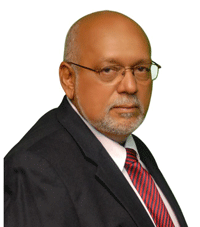THE proclamation by President Donald Ramotar to prorogue Parliament, which has effectively suspended the first session of the 10th Parliament for up to six months, has attracted global attention.
Secretary-General of the Organization of American States (OAS), Jose Miguel Insulza, has conceded that the move was made within the nation’s constitutional framework.
“The prorogation of the Parliament of Guyana issued by President Ramotar has occurred within the framework of the country’s constitution,” he said in a statement released on Monday evening.
Mr Insulza said that, in a democracy, an efficient functioning of the Parliament allows for checks and balances and for the voice of the people to be heard. He acknowledged that since the last elections in November 2011, Guyana has had a “split governance system”, with the executive controlled by one party and the combined Opposition having the majority in Parliament.
“This situation presents both challenges and opportunities for all parties in Guyana to work together for the greater good of the country,” he said.
To this end, the OSA Secretary-General has called on local political leaders to redouble their efforts to reach an understanding and compromise on the major political and socio-economic issues facing the country.
President Ramotar’s decision followed an address he had made to the nation on November 4th in which he stated that it was his desire for the National Assembly, in its post-recess sittings, to deliberate and give priority to important matters relating to the development of the country and the future of all Guyanese.
Unfortunately, A Partnership for National Unity (APNU) and the Alliance For Change (AFC) indicated an intention to push ahead with the AFC-sponsored no-confidence motion, which would have triggered a dissolution of the 10th Parliament and make way for fresh general elections.
As such, the President, in keeping with his November 4 commitment, moved to prorogue the National Assembly to pave the way for greater dialogue in the interest of the Guyanese people.
The presidential right to prorogue Parliament is one that is common in the constitutions of Commonwealth countries, making it a commonly used tool Governments resort to. However, this is the first time such a move has been made in Guyana, and it has been brought on by the current circumstance.
Section 70 (1) of the Guyana Constitution states that: “The President may at any time by proclamation prorogue Parliament.”

